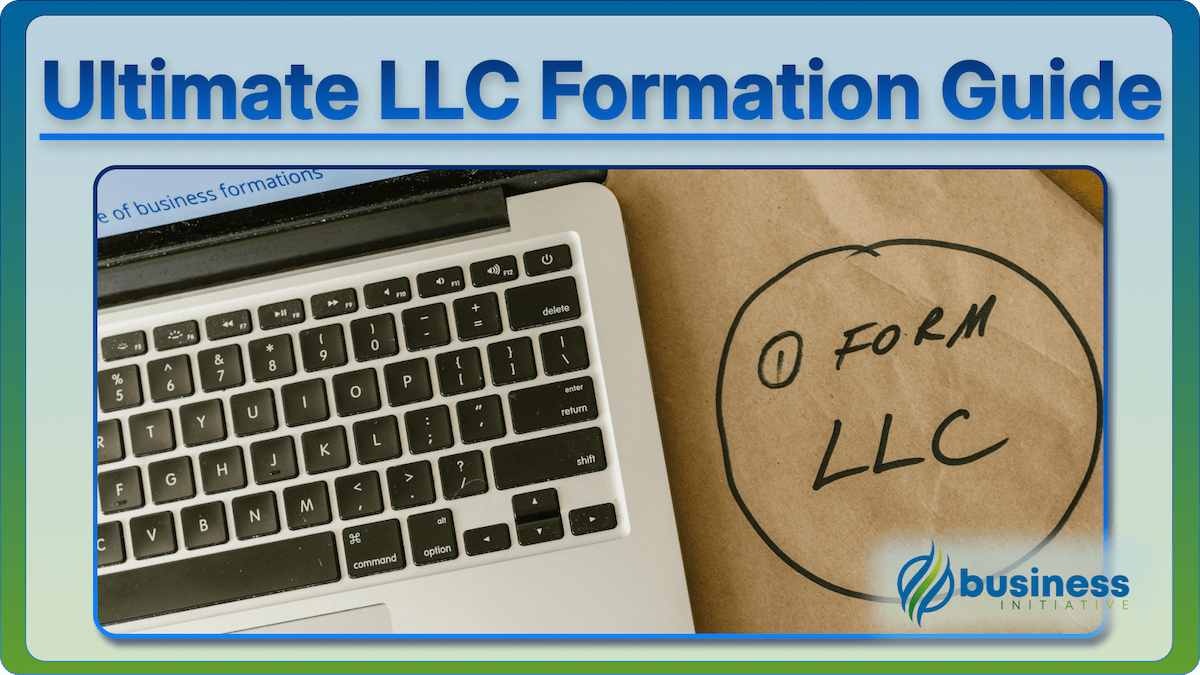You need to open a business bank account.
Banks ask for identification. You wonder about EIN vs. SSN. You need clarity.
You need answers.
EIN requirements. SSN acceptance. Credibility benefits. Your understanding.
This guide shows you how.
Identification comparison. Bank requirements. Best practices. Your knowledge.
Read this. Understand requirements. Make the right choice.
 Key Takeaways
Key Takeaways
- Banks may accept SSN for sole proprietorships—some banks allow sole proprietors to use SSN instead of EIN for business accounts
- EIN is required for entities—LLCs and corporations must use EIN for business bank accounts, not SSN
- EIN provides credibility—using EIN instead of SSN signals professionalism and separates business from personal finances
- EIN protects privacy—using EIN instead of SSN reduces exposure of your personal Social Security number
- EIN enables growth—having an EIN makes it easier to hire employees, apply for business credit, and scale operations
 Table of Contents
Table of Contents

Why Identification Matters
Identification determines account access.
What happens without proper identification:
- Account applications are rejected
- Business operations are delayed
- Credibility is questioned
- Growth is limited
What happens with proper identification:
- Accounts are approved
- Operations proceed smoothly
- Credibility is established
- Growth is enabled
The reality: Identification is essential for business banking.
EIN Requirements
Understand EIN requirements:
When EIN Is Required
What requires EIN:
- LLC bank accounts
- Corporation bank accounts
- Partnership bank accounts
- Multi-member businesses
Why it matters: Entities must use EIN.
EIN Application
What application requires:
- Entity formation documents
- Business information
- Responsible party information
- Business purpose
Why it matters: Application determines approval.
EIN Processing
What processing involves:
- Online application
- Immediate approval
- Fax application
- Mail application
Why it matters: Processing affects timeline.
Pro tip: Get your EIN. Requirements, application, processing. See our EIN guide for application.

SSN Acceptance
Understand SSN acceptance:
When SSN Is Accepted
What accepts SSN:
- Sole proprietorship accounts
- Some small business accounts
- Personal business accounts
- Informal business operations
Why it matters: SSN may work for sole proprietors.
SSN Limitations
What limitations exist:
- Limited to sole proprietorships
- Reduced credibility
- Privacy exposure
- Growth restrictions
Why it matters: Limitations affect operations.
SSN Risks
What risks exist:
- Personal liability exposure
- Privacy concerns
- Professional image issues
- Scaling challenges
Why it matters: Risks affect business.
Pro tip: Understand SSN acceptance. When accepted, limitations, risks. See our EIN guide for comparison.
EIN Benefits
Understand EIN benefits:
Credibility Benefits
What credibility benefits:
- Professional image
- Business separation
- Investor confidence
- Partner trust
Why it matters: Credibility enables growth.
Privacy Benefits
What privacy benefits:
- Reduced SSN exposure
- Business identity protection
- Personal information security
- Data breach protection
Why it matters: Privacy protects you.
Operational Benefits
What operational benefits:
- Employee hiring
- Business credit
- Tax filing
- Compliance management
Why it matters: Operations require EIN.
Pro tip: Get EIN benefits. Credibility, privacy, operations. See our EIN guide for benefits.

When to Use Each
Know when to use each:
Use EIN When
What requires EIN:
- Forming LLC or corporation
- Hiring employees
- Building business credit
- Scaling operations
Why it matters: EIN enables growth.
Use SSN When
What allows SSN:
- Sole proprietorship only
- No employees
- No business credit needed
- Informal operations
Why it matters: SSN works for simple cases.
Transition Planning
What transition requires:
- EIN application
- Account updates
- Document changes
- System updates
Why it matters: Transition enables growth.
Pro tip: Plan your transition. EIN when needed, SSN when simple, transition planning. See our EIN guide for planning.
Best Practices
Follow best practices:
Get EIN Early
What early means:
- Apply before account opening
- Have EIN ready
- Complete application correctly
- Keep documents organized
Why it matters: Early EIN prevents delays.
Use EIN Consistently
What consistency means:
- Use EIN for all business accounts
- Use EIN for all business transactions
- Use EIN for all business filings
- Use EIN for all business operations
Why it matters: Consistency maintains separation.
Protect Your EIN
What protection means:
- Secure EIN documents
- Limit EIN sharing
- Monitor EIN usage
- Update EIN records
Why it matters: Protection prevents fraud.
Pro tip: Follow best practices. Get early, use consistently, protect. See our EIN guide for practices.
Your Next Steps
Understand requirements. Choose EIN. Open your account.
This Week:
- Review this guide
- Understand EIN vs. SSN
- Determine your needs
- Apply for EIN if needed
This Month:
- Complete EIN application
- Gather required documents
- Open business bank account
- Set up business operations
Going Forward:
- Use EIN consistently
- Protect your EIN
- Update EIN records
- Scale your business
Need help? Check out our EIN application guide for getting your EIN quickly, our hiring guide for employee requirements, our waiting guide for productive tasks, and our registered agent guide for business address setup.
Stay informed about business strategies and tools by following us on X (Twitter) and signing up for The Initiative Newsletter.
FAQs - Frequently Asked Questions About EIN vs. SSN: When Banks Accept Each and Why You Still Want an EIN

When do banks accept EIN vs. SSN for a business account?
Banks may accept SSN for sole proprietorships—some banks allow sole proprietors to use SSN instead of EIN for business accounts. For LLCs, corporations, and partnerships, EIN is required; these entities must use an EIN for business bank accounts, not an SSN.
Learn More...
Identification requirements depend on your business structure: entities need an EIN; sole props may have the option to use SSN at some banks.
Even when SSN is accepted, using an EIN improves credibility, separates business from personal finances, and reduces exposure of your Social Security number.
Check your specific bank’s policy and your state’s requirements before opening an account.
Why should I get an EIN if my bank accepts SSN?
EIN signals professionalism, keeps business and personal finances separate, and protects your privacy by limiting use of your SSN. It also makes it easier to hire employees, apply for business credit, and scale—many vendors, lenders, and partners expect or require an EIN.
Learn More...
Using an EIN instead of your SSN reduces the risk of identity theft and keeps your personal number out of more places.
Banks and others view EIN as a sign of a serious, structured business.
Getting an EIN early avoids having to update accounts and contracts later when you grow or add employees.
What do I need to apply for an EIN?
You typically need entity formation documents, business information, responsible party information, and a business purpose. Applications can be done online (often with immediate approval), by fax, or by mail. Processing time and requirements depend on the method and the IRS.
Learn More...
Having formation documents and accurate business details ready speeds up the process.
The article links to an EIN guide for application steps and getting bank-ready quickly.
Once you have your EIN, you can use it for banking, hiring, and business credit.
Is an EIN required for an LLC or corporation?
Yes. LLCs, corporations, and partnerships must use an EIN for business bank accounts; banks require it for these entity types. Sole proprietorships are the only structure where some banks may accept SSN instead of EIN.
Learn More...
Entities are separate from their owners for tax and legal purposes, so banks require the business’s own identifier (EIN).
Opening a business account without an EIN when you have an LLC or corporation is not an option at most banks.
Apply for your EIN as part of formation so you’re ready when you open the account.
What are best practices for EIN vs. SSN when opening a business account?
Use an EIN whenever your structure allows it—required for LLCs and corporations, and recommended for sole proprietors for credibility and privacy. Have your formation documents and identification ready, choose a bank that fits your business needs, and keep business and personal finances strictly separate by using the EIN for all business accounts and credit.
Learn More...
Best practices include applying for an EIN early, using it consistently for banking and contracts, and never mixing personal SSN with business accounts when you have an entity.
The article’s “best practices” and “next steps” sections give more detail on requirements and follow-up actions.
When in doubt, get an EIN and use it; it simplifies growth and protects your personal identity.
Sources & Additional Information
This guide provides general information about EIN vs. SSN for business bank accounts. Your specific situation may require different considerations.
For EIN application, see our EIN Application Guide.
For hiring employees, see our Hiring Guide.
For productive tasks while waiting, see our Waiting Guide.
For registered agent services, see our Registered Agent Guide.
Consult with professionals for advice specific to your situation.


